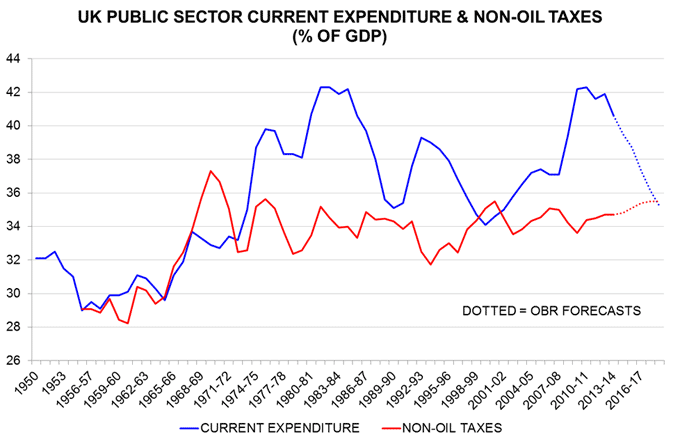UK whole-economy output has surpassed its level in the 2007-08 financial year yet the budget deficit remains huge – a projected 5.5% of GDP on an underlying basis* in 2014-15, according to the Office for Budget Responsibility (OBR), compared with 2.6% in 2007-08. Why hasn’t economic recovery delivered commensurate fiscal improvement?
The main reason is that public current expenditure skyrocketed after 2007-08 and – despite “austerity” – has yet to return to earth. Current spending as proportion of GDP rose from 37.1% in 2007-08 to a peak of 42.3% in 2010-11. It was still 40.6% in 2013-14 and is projected to take another three years to reach the 2007-08 level – see chart. (The 2007-08 spending share was not historically low.)
The still-wide fiscal deficit cannot be attributed to a dearth of tax receipts. The share of non-oil taxes in GDP in 2013-14, at 34.7%, was above the average of 34.4% during Labour’s rule from 1997 to 2010. It is projected to rise to 35.5% by 2017-18 – a level matched or exceeded in only five years in British fiscal history.
Current fiscal plans involve a 1980s-scale cut in the spending share of GDP. The earlier reduction was delivered by Conservative governments with sizeable parliamentary majorities amidst a prolonged economic boom driven partly by strong credit expansion. A repeat performance, in other words, is unlikely. Instead, the next administration may try to close the fiscal gap by moving the tax share up to a continental European level – despite negative consequences for supply-side economic performance.
*Public sector net borrowing excluding temporary effect of financial interventions, APF and Royal Mail transfers.
